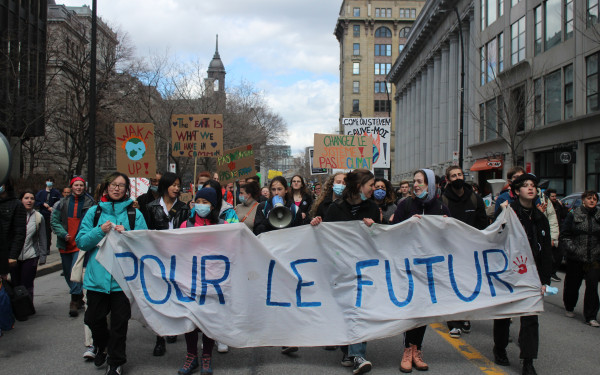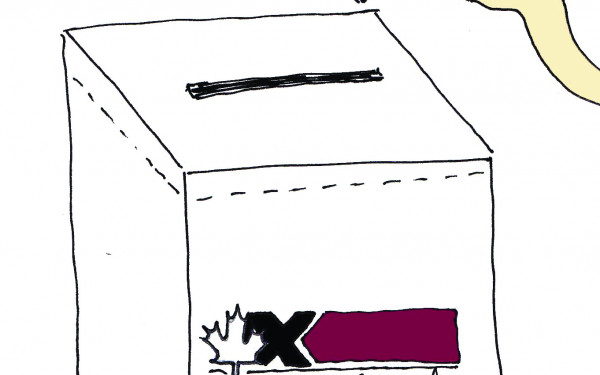Politics Catered to the Youth: Federal Election Debate
Environment and Health Care as Top Priorities
Local politicians from major political parties met on Wednesday at the Phi Centre to discuss five major topics that seem to be the focus of voters aged 18 to 25 years old.
The pleasant and occasionally quite comedic debate featured candidates from Bloc Québécois, Conservative Party of Canada, Liberal Party of Canada, New Democratic Party and the Green Party of Canada. They were from the Pierre-Boucher-Les Patriotes-Verchères, Honoré-Mercier, Joliette, Mont Royal and Laurier Ste-Marie ridings.
With people aged 18 to 25 years old having the lowest voter turnout, the topics addressed in the debate were targeted at this demographic. The debate was split into five topics: health care, the environment, intergenerational equity, public financing, and research and higher education.
When talking about the environment and the promises of their parties, a number of them mentioned the Paris Agreement, between the members of the United Nations Framework Convention on Climate Change, with the basic goal of having a low carbon world. Some of the key aims of this agreement include keeping a global temperature increase well below two degrees Celsius, and strengthening the ability of countries to deal with the effects of climate change.
According to the Conference Board of Canada, the carbon price that is proposed by the government for 2022 won’t be enough to meet the agreements made by the UNFCCC.
When Liberal candidate, Steven Guilbeault, was asked what his party would do to increase the carbon tax, he said they already put a standard national tax, making each province pay and that progress was being made.
Mathieu Daviault of the Conservative Party opposes the carbon tax because he believes that the harm and the responsibility of the tax will go to consumers rather than the big polluting companies.
The Conservatives’ plan is to “attack the problem at its source,” and focus on developing greener technologies, said Daviault. They also hope to reintroduce the income tax rebate for public transportation.
The Green Party’s Clément Badra agrees with raising the carbon tax but believes that, not only should it be increased, but the returns made from this tax should be put towards developing projects to change the way the economy works.
He believes in the economic potential that Canada has without the exportation of oil—a point Gabriel Ste-Marie, a candidate for the Bloc Québécois, agrees with. Badra suggests the replacement of oil production centers with agricultural industries which he believes will help the Indigenous population in the North.
Unlike other candidates, Chu Anh Pham from the New Democratic Party placed more attention on the consumers’ actions rather than the oil companies. If elected, the NDP plans to create a bank called The Canadian Bank for the Climate. The bank would help Canadians make renovations to their homes to make them more eco-friendly.
Health Care
Each party brought a different subsection of the health sector their parties value.
Whether that be Badra drawing upon the issue of mental health and addiction, Pham stating we should first start by giving access to potable water to all citizens (particularly the Indigenous population), Daviault putting importance to organized sports for kids, Ste-Marie saying there is a lack of healthcare funding, or Guilbeault saying that a healthy environment equals a healthy population, they all brought forth their own improvements to a more holistic health.
While the candidates mostly disagreed with each other, one thing they had a consensus on was the need to deploy your democratic right to vote.
“Allow the youth to be represented” says Daviault.






_900_642_90_600_375_90_s_c1.jpg)
